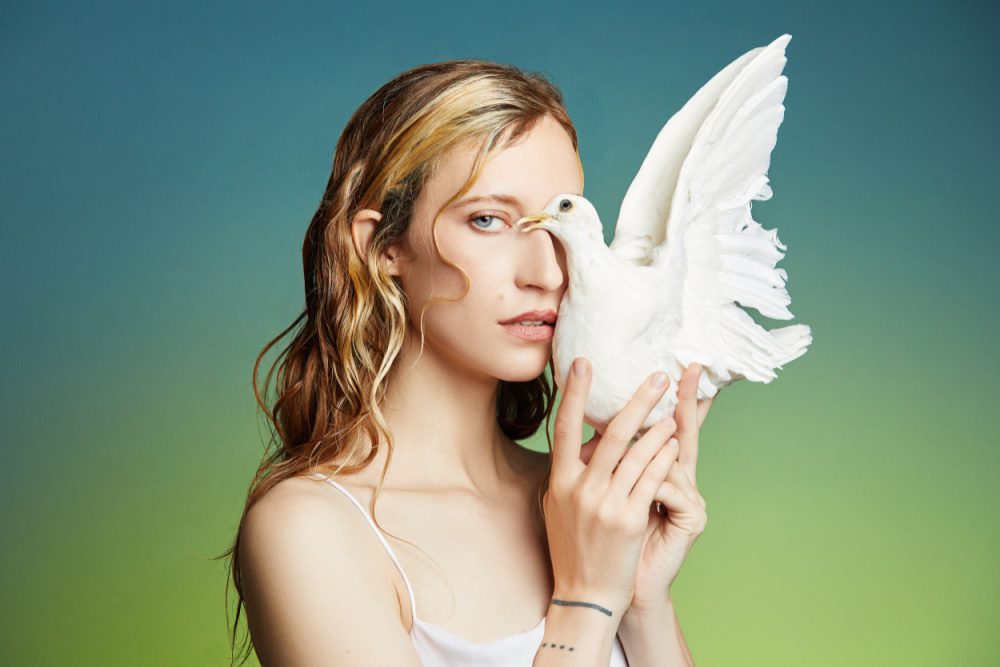Belltown Bloom Festival Returns to Seattle to Highlight Diverse Artists


Delayed two years by COVID, Belltown Bloom, an all-ages festival created to bring the organizers’ favorite bands together and highlight gender and racial diversity in the Seattle music scene, returns this weekend for its second official year.
Belltown Bloom happens on May 6th and 7th at The Crocodile and at Belltown Yachtclub in the Belltown neighborhood of Seattle. The festival line-up is pre-dominantly local (except for bands like the Brooklyn-based pysch-rock band Crumb) and is jam-packed with formidable woman, non-binary, and BIPOC-led Seattle acts, including pop singer Ariana Deboo, punk rocker Haley Graves, and melancholic indie pop artist, Maiah Manser.
Formerly known as Belltown Bash, Belltown Bloom was first organized in 2019 by sisters Veronica and Valerie Topacio of local band, La Fonda, and put on at the The Crocodile, the time-honored Seattle venue where bands like Nirvana and Mudhoney have played. This year, the festival takes place at the newly-remodeled Crocodile space, as well as at the Belltown Yacht Club, a relatively new venue founded in 2019.
“[Veronica and Valerie] have a pretty diverse musical community and that shows in the bands they chose for the festival, not just in gender and race but also in age. The festival features artists across all of these spectrums,” says Nikki Barron, Marketing Manager for The Crocodile.
That said, there is definitely a particular focus on centering women and non-binary people at Belltown Bloom, and in giving gender diverse performers a safe and supportive platform for their art, which research shows isn’t commonplace.
“In 2021, Rolling Stone published an article that reported how from 2012 to 2020, women comprised a total of just 21.6% of all artists, 12.6% of all songwriters, and 2.6% of all producers. What is worse is that those numbers seem to be dropping. No one [is] telling me to go back to the kitchen or anything but the numbers don’t lie. Women and non-male genders are underrepresented and under-resourced in music,” says Barron. “I believe festivals that make intentional choices, like focusing on women, give an opportunity for the music community to have a conversation about the issue, discover artists they may have missed due to unconscious bias, and provide an opportunity for the artists that they may have been unintentionally passed over for in the past.”
For her part, Maiah Manser is thrilled to be part of a festival with such an inclusive mission—and to return to Seattle, where she went to Cornish College of the Arts and got her career off the ground. She moved to Los Angeles in 2017.
“I feel like [Seattle] was so formative to my music growth, honestly. I felt really supported in the Seattle community in general and also, it gave me such a building block for the different kind of hustle that exists here in LA,” Manser says. “I think that living in Seattle inspired me to have a more experimental approach with music. Experimental and dark and a different approach to pop music than if I had moved straight to LA.”
Manser plays the festival on Friday, May 6, on the heels of two new singles—the upbeat, minimalist “Shine,” released March 11, and the darker “I Know,” which drops today, April 29th. These two singles are the beginnings of a new EP from Manser called Third Degree, which considers relationships with the self and with romantic partners. Manser said she self-produced Third Degree, largely due to sexism she encountered in the industry.
“I’ve been starting to self-produce a lot more, so if anybody tries to tell me that I maybe don’t know what I’m talking about, I do know what I’m talking about,” she says. “When I was beginning music, I would experience a lot of men telling me that I couldn’t do something… Or things like, I can hear exactly how I want this to sound, can we please change it? And kind of being met with ‘no.'”
In light of these experiences, Manser adds that learning how to self-produce has been empowering and allowed her to escape constant underestimation as well as other uncomfortable issues – like being constantly sexualized by the men in work-related situations.
“I know a lot of women that can relate to this—feeling like a producer wants to get you into a session just because they want something more with you,” says Manser. “That one can come up and it has come up for a lot of my peers and a lot of women and nonbinary people and it’s an interesting game out there. I think that self-producing feels like it’s safe [from that.]”
In addition to producing her own work, Manser has been producing for other women and LGBTQ+ folks, in an effort to increase their sense of safety and inclusion in the industry and allow them to see their unique artistic visions through.
“I feel that [industry sexism] is changing a bit as more women have spoken out about their experiences and I think it’s important that women continue to speak out about their experiences,” says Manser.
Through featuring artists like Manser, next weekend’s Belltown Bloom festival highlights the struggles women and non-binary artists face in the music industry, and in particular, the authentic and innovative music that spills forth when diverse creators are allowed to create unencumbered by the male gaze and convention.
Barron sums it up best: “Belltown Bloom is about helping underrepresented and under-resourced artists (which are women and even more so trans and nonbinary people) bloom through an opportunity to play such a fantastic festival on some of Seattle’s greatest stages.”
Follow Maiah Manser on Facebook and Instagram for ongoing updates. See Belltown Bloom’s full line-up and buy tickets here.

